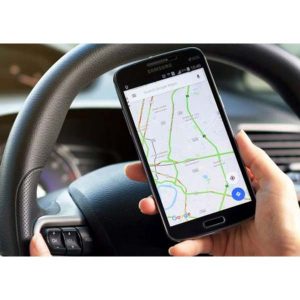THE MIL & AERO COMMENTARY, June 28, 2016. How much do you trust and rely on your personal GPS satellite navigator to know where you are or how to get to where you are going? GPS interference can occur.
If you are heavily reliant on GPS, there is a good chance your trust is out of place – and that’s just to find a friend’s house, restaurant, or the latest trendy bar.
Experts are beginning to study how well the Global Positioning System (GPS) satellite navigation network can withstand the intended or accidental effects of electronic interference. The answer that comes up is not very good.
RF and microwave experts at Spirent Communications plc in Crawley, England, have studied electronic interference from GPS signals over the past year and have come up with amazing results.
“We searched for GPS glitches around the world and found many incidents of interference – and some deliberate ones,” said Guy Buensel, PNT technologist at Spirent, a multinational telecommunications test and measurement company.
If car GPS systems are only questionably reliable, what effects does this have on commercial air traffic control, radar systems, intelligent ammunition management or the fleet management of truck and cargo ships?
As for Spirent’s conclusions after a year of GPS testing, satellite navigation signals are exposed to all kinds of interference everywhere that can compromise, degrade, or eliminate GPS signals in spotty transient incidents.
These temporary GPS glitches can cause a lot more problems than you think. This is because terrestrial GPS users rely on the service for timing as much as they do for location information. GPS satellites have precise atomic clocks on board that provide accurate timekeeping that has never been available before.
“We have seen examples of broadcast systems or telecommunications systems where time synchronization can be lost,” says Buensel. “In digital broadcasting, this means that you can lose entire segments of a broadcast.”
In another incident, measured at Boston Logan Airport in Massachusetts, the airport’s ground approach system recorded temporary anomalies caused by a simple electronic jammer with a cigarette lighter in a vehicle near the airport.

With these tiny GPS jammer, which can be purchased for less than $ 50, users can ruin efforts to track their vehicles with GPS signals by creating a bubble of RF interference around the vehicle that can be up to a quarter mile wide. Problems arise when this vehicle passes an airport or other facility that relies on GPS positioning and timing.
“GPS signals are weak and easy to disrupt,” emphasizes Buensel. “We started monitoring GPS-L1 interference in May 2015. We put receivers on our roofs in the UK. I thought we were lucky enough to see interference. Hundreds of incidents are logged in a month. We are surrounded by locations where there is interference. ” is a lot of electrical switchgear. There are a lot of glitches that accidentally happen, but we’ve seen some cases of deliberate glitch. ”
Will intentional and accidental GPS interference cause planes to fall from the sky or trucks to crash into buildings? This is unlikely since most business and life critical GPS devices have enough backup to handle intermittent outages, says Buensel.
Liquor experts are trying to raise awareness of potential interference from GPS devices to prepare users for the inevitable. Once users know they are facing a traffic jam, they can take steps to reduce the impact.
“GPS interference is very dependent on the line of sight,” explains Buensel. “It can be useful to know that there is GPS interference nearby so you can move the antenna.” Other solutions could include a holdover system like an oscillator or a complementary system like Loran, ”he says.
Military systems designers can often use techniques such as beam steering or antenna nulling to thwart attempts to jam GPS signals. “There are solutions, depending on what you want to do and what the value of precise positioning is for you,” says Buensel.





